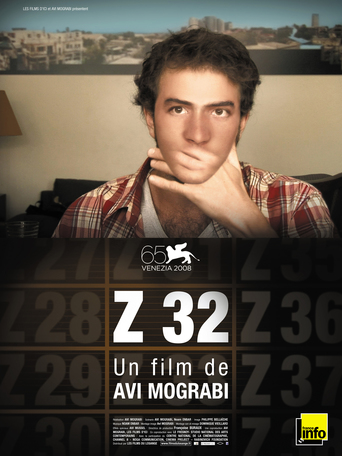Diagonaldi
Very well executed
Protraph
Lack of good storyline.
Dynamixor
The performances transcend the film's tropes, grounding it in characters that feel more complete than this subgenre often produces.
Bob
This is one of the best movies I’ve seen in a very long time. You have to go and see this on the big screen.
gaujaim
The film is based on an Israeli soldier's confession to his girlfriend about killing of two Palestinian policeman in an act of revenge. The form and content of the film derives from an ancient Greek tragedy, using the elements of musical inserts, like of an ancient chorus, judging the main protagonist. What I found fresh and unusual in this film is how it manages to polarize masculine and feminine views in such a simple and honest manner by letting them interview each other. Somehow, through this, it achieves a very high level of sincerity and brings out the simple truth of men being born as warriors and women as saviors. All the protagonist's actions are consciously recognized and analyzed from distance but instinct driven in the moment of happening. By concentrating on the detailed way of reconstructing and describing the act of killing, the film suddenly gets a much wider view and becomes an easy-handed comment on the darkest side of human nature, reminding me of Lars Von Trier's „Anticrist".
sf2rio
Mr. Mograbi delivers another complex journey into the deep psyche of the Israeli murder machine. The filmmaker always thinks his projects all the way through and Z32 also lacks any ideological gaps. Z32 is the file number of one soldier's testimony of his unit's revenge mission where he ambushed and killed unarmed Palestinians. He agrees to do the film, but only if his face is not shown.If the challenge of making a film based on an interview with one person without showing his face isn't enough, Mograbi decides that it should be a musical as well. The filmmaker sings in his living room throughout the piece, songs he wrote himself while making the film. Catchy lyrics include, "Put a mask on him so we don't have to see what evil looks like," "Am I harboring a murderer because it makes a good film," and "My wife said, 'Don't film him in our living room.'" The filmmaker once again dives into the village to show us the universal and isn't afraid of the absurdity intrinsic in the horror.Mr. Mograbi and I had a brief but meaningful conversation after the film about Truth and Reconciliation Trials. In his words, "We have to say what we've done to each other."
Max_cinefilo89
A documentary about terrorists, where the criminals themselves confess their sins on camera, with their faces blurred so that no one can recognize them. As an idea, it's actually pretty interesting. But that's all it should have remained: an idea. The finished product, Z32, is confusing, nonsensical and, most of the time, plain boring.The director, Avi Mograbi, structures the film like this: on one level we have the Israeli terrorist who, encouraged by his girlfriend, tapes a confession where he expresses his regret for killing two Palestinian police officers during a reprisal operation. The girlfriend testifies on camera too, on the condition that her face be unrecognizable. On the other level, we have a series of Lynchian musical interludes, staged by Mograbi himself, which have no connection whatsoever to what's being told and seem to have been inserted simply to extend the running time. There are also additional scenes where the terrorist visits the crime scene with a friend, providing further insight.Artistically speaking, the director might even have had an interesting point to make with this new, unprecedented approach to the subject of terrorism. Unfortunately, the utter pointlessness of what is said (the "confession" quickly turns into stream-of-consciousness nonsense) and the inexplicable interludes do nothing but alienate the audience: whereas Lynch, who pioneered this kind of scenes with Twin Peaks and brought them to extreme levels in INLAND EMPIRE, uses the surreal digressions as an organic part of the narrative (whatever that may be), Mograbi is unable to make us understand why his hybrid of Munich and The Blair Witch Project has to feature a string of gratuitous, artsy intermissions. It's as if two different, completely incompatible films met at a crossroads and merged without thinking about the consequences.Granted, this isn't the worst film ever made (those tend to be fully devoid of ideas), but its attempt to bring a new perspective on a done-to-death subject ends up being its downfall. In other words, it's too blatantly weird for its own good.

